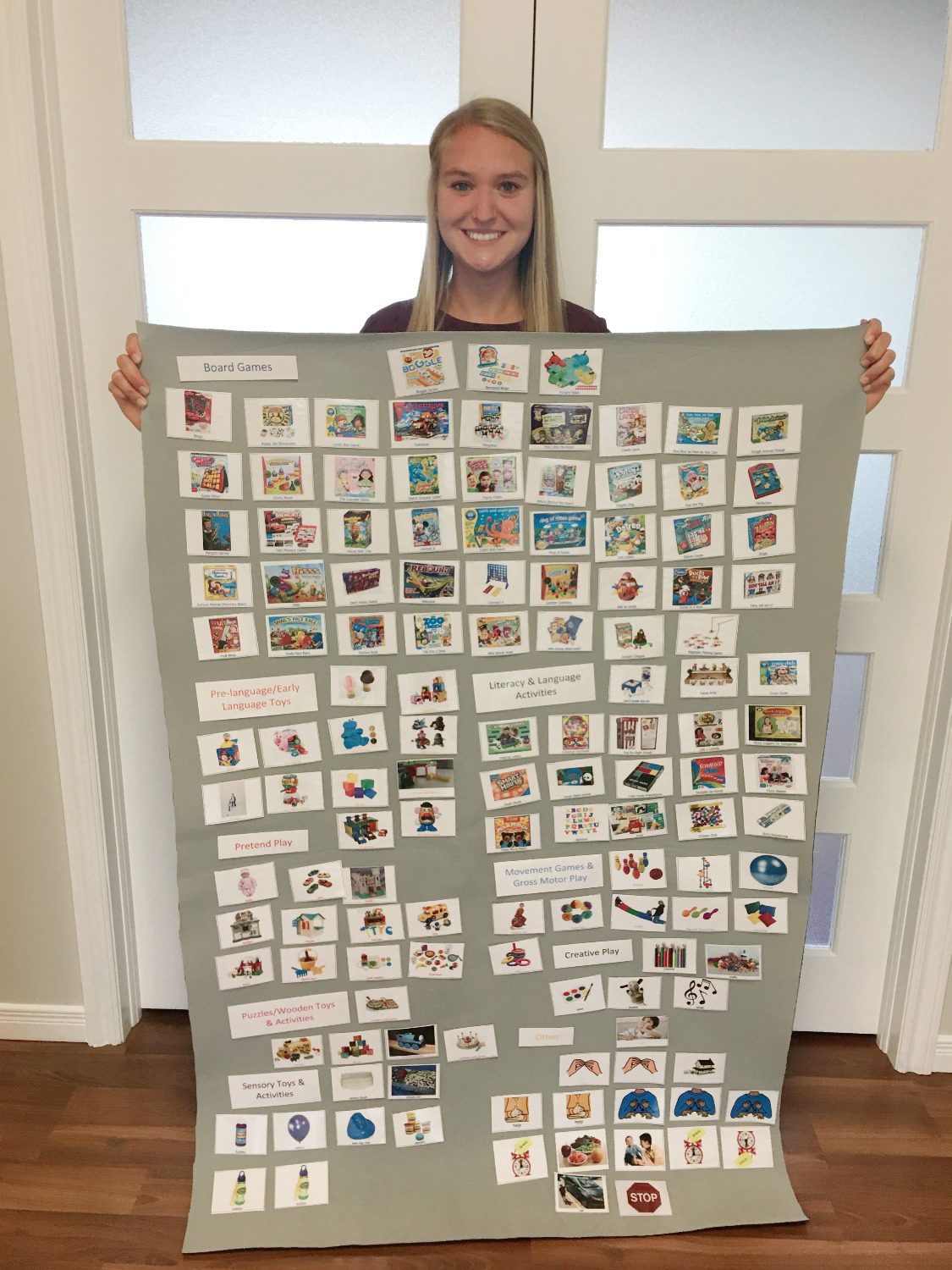
Hi, my name is Elise.
I am a fourth year University student, completing my Health Science degree in the Speech and Language Pathology, bilingual program, at Laurentian University.
After graduating, I plan to continue volunteering while applying for a Master’s program in Speech and Language Pathology at Universities in Ontario.
As I was searching for new volunteer experiences, I came across the Aurora Speech Clinic.
It was an absolute pleasure volunteering for Stephanie and Jill who gave me such a warm welcome.
I volunteered at Aurora Speech Clinic during the summer of 2017, where I was able to observe Speech-Language Pathologists and complete various tasks.
When not observing, I helped make therapy materials, completed office duties, and I have learned a lot about running a private speech clinic.
My big project over the summer was to create a visual schedule/picture wall for the clinic.
As I learned this summer, a visual schedule refers to any visual that is used to depict a sequence of events so an individual can see what will happen and when.
Visual schedules can be used to show the steps in a particular activity (e.g., toileting), the activities for the day/week/month, or in our case, the agenda of a therapy session.
Visual schedules are helpful tools to reduce anxiety, reinforce language comprehension, illustrate time concepts (e.g., first, next, then, finally, etc), help build independence and self-regulation skills, and much more!
To create this visual schedule wall, I used Boardmaker to make pictures to represent all of the activities and games that individuals might use in speech therapy at ASC.
Then, I printed them all out, laminated them, added velcro backings, organized them into categories, and put them up on velcro compatible fabric.
Jill’s husband, ASC’s unofficial handyman, will soon mount in on wood, frame it, and hang it on the wall.
Once it is hung up on the wall, the therapists will use it to create visual schedules before their speech therapy sessions.
Or, when appropriate, the children and therapist will go to the wall together, and take-turns selecting pictures to put on their visual schedule.
Involving children in the process of generating their own schedule is helpful for increasing participation in therapy and building executive function skills (e.g. planning, organization, follow-through, self-regulation).
Volunteering at the Aurora Speech Clinic has given me the opportunity to be part of an environment that is very passionate about helping others.
My volunteer experience has inspired me to want to open up my own private clinic in the future and also made my passion for the field of Speech-Language Pathology grow stronger!
In the near future I hope to have the chance to volunteer with the adult population as well.
I would love to gain more experience with cognitive communication, feeding and swallowing.
If you have any questions, concerns, or comments about visual schedules, speech therapy, or communication in general, feel free to reach out to Jill and Stephanie at Aurora Speech Clinic.
I’m glad I did!
For more information about visual schedules, check out these links:
- Using Visual Schedules: A Guide for Parents
- Visual Schedules: How and Why to Use Them in the Classroom
- Why Use Visual Scheduling?
Elise Shklar,
Laurentian University student, ASC Volunteer
372 Hollandview Trail, #302,
Aurora, ON L4G 0A5
(905) 503-4321
» https://goo.gl/maps/fg3XKnNsczzwLzTz7
Aurora Speech Clinic is located in Aurora, ON and offers personalized skilled intervention to those struggling with their speech and language skills. Services offered include screening, consultation, and comprehensive evaluation. We also provide one-on-one and/or group therapy for speech sound disorders, receptive/expressive language delay/disorder, stuttering/cluttering, accent reduction, and much more.